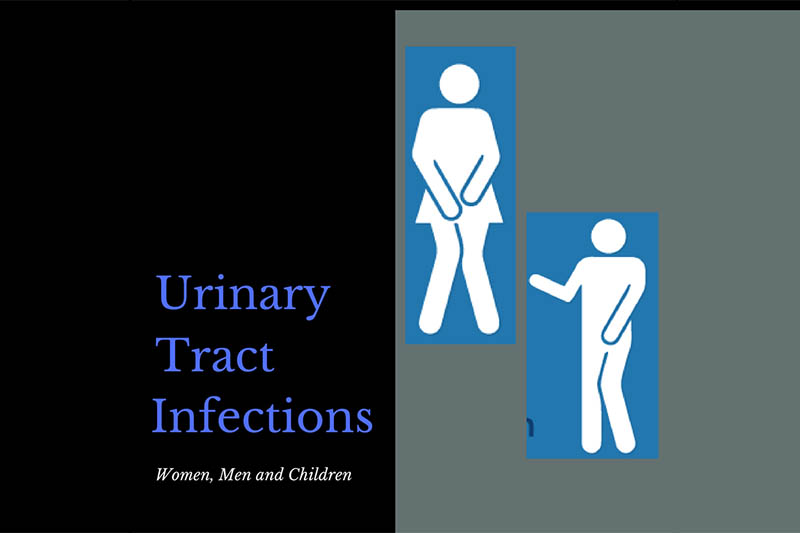
What are UTI’s? Urinary Tract Infections
Do you… Frequently or urgently need to urinate Often only pass small amounts of urine Have Pain or burning sensation when urinating These can be symptoms of urinary tract infections. There

The numerous health benefits of the colourless, volatile eucalyptus oil which is extracted from the fresh eucalyptus leaves, branch tips, and dried leaves have attracted the world to explore its usage as a conventional medicine as well as an aromatherapy essential oil.
You probably also noticed that eucalyptus oil in aromatherapy is becoming increasingly popular as it blends so perfectly well with many other essential oils including thyme essential oil, rosemary essential oil, marjoram essential oil, lavender essential oil, cedar wood essential oil, and frankincense essential oil.
Eucalyptus essential oil has applications in skin care products, soaps, detergents and household cleaners, and is well often applied topically to treat skin infections and used as a prime ingredient in many mouthwashes and toothpastes as it is very effective against cavities, dental plaques, gingivitis and other dental infections due to its germicidal and antiseptic properties.
The antiseptic and deodorant nature of eucalyptus oil makes it a perfect room freshener for hospitals and sickbed atmosphere. It also kills bacteria and germs in the air, keeping the room environment clean. However, one should take care while using eucalyptus oil.
If taken in large quantities, it is toxic. Life-threatening poisonings have been reported from overdoses of eucalyptus oil. Symptoms of overdose or toxicity include nausea, vomiting, and diarrhoea, central nervous system depression, a drop in blood pressure, and circulation problems.
As an ingredient in over-the-counter drugs, eucalyptus oil is sold and promoted over-the-counter for it is used for temporary relief of minor aches and pains of muscles and for temporary relief of nasal congestion and coughs associated with a cold.
Eucalyptus oil has been compared to menthol because it acts on receptors in the nasal mucosa, which help to alleviate nasal congestion.
For eucalyptus to provide an effective expectorant and antiseptic action, the volatile oil has to contain at least 70% eucalyptol.
It has been reported that one of the first medicinal uses of Eucalyptus was by the Australian aborigines, who not only extracted valuable water from its roots, but used its leaves to relieve fevers.
Another important reason why people add eucalyptus oil to baths, spas and saunas is that it provides a cooling and refreshing effect.
Eucalyptus oil stimulates and is effective in removing exhaustion and mental sluggishness and rejuvenates those who are suffering from stress and sleeplessness.
Eucalyptus supports respiration by opening the lungs, clearing clogged nasal passages, and bronchial congestion. It is for these reasons that eucalyptus is one of the best-known cold treatments anywhere.
Eucalyptol, one of eucalyptus oil’s chief components, is found in several over-the-counter cough drop brands. But eucalyptus oil benefits expand beyond the everyday cold.
Eucalyptus oil benefits have been recognized throughout history to help with many things related to breathing. These uses include being helpful during asthma attacks, bronchitis infections, and so much more.
Asthma: typically, eucalyptus ends up being utilized as a treatment for asthma and associated complications. However, in some rare individuals it may actually trigger an attack.
Allergic Rash: A rash may be developed by people with allergies to eucalyptus after skin exposure to the oil.
Drowsiness: Based on the U.S. National Institutes of Health, eucalyptus oil may cause severe drowsiness, especially if it’s taken orally. Skin contact with eucalyptus may bring about exhaustion; anyone that might be on sedatives should be careful and cautious about taking eucalyptus.
Trouble Breathing: Babies and young children shouldn’t inhale or ingest eucalyptus oil. Eucalyptus might cause apnea, wheezing, and asthma like symptoms if it’s employed directly onto the skin or surface of young children.
Drug Interactions: The NIH states that eucalyptus can increase the absorption of certain drugs, and get in the way of the absorption of certain drugs that are metabolized inside of the liver.
Toxicity: Eucalyptus oil should not be taken orally, except under the advice of your primary medical healthcare practitioner. The NIH warns that even modest quantities of eucalyptus oil can result in a deadly overdose. Symptoms of eucalyptus oil overdose include pain in the stomach, seizures, an increased pulse, shallow respiration, and trouble swallowing. Never give eucalyptus oil to a small child without first consulting your primary healthcare provider.

Do you… Frequently or urgently need to urinate Often only pass small amounts of urine Have Pain or burning sensation when urinating These can be symptoms of urinary tract infections. There
Disclaimer – Our intent is not to diagnosis but to offer information on therapy choices and practitioners. Information on this site is intended general educational purposes only. Any statements made are carefully referenced and any information, products or services discussed are not intended to diagnose, cure, treat or prevent any disease or illness. Please consult a healthcare practitioner before making a choice.